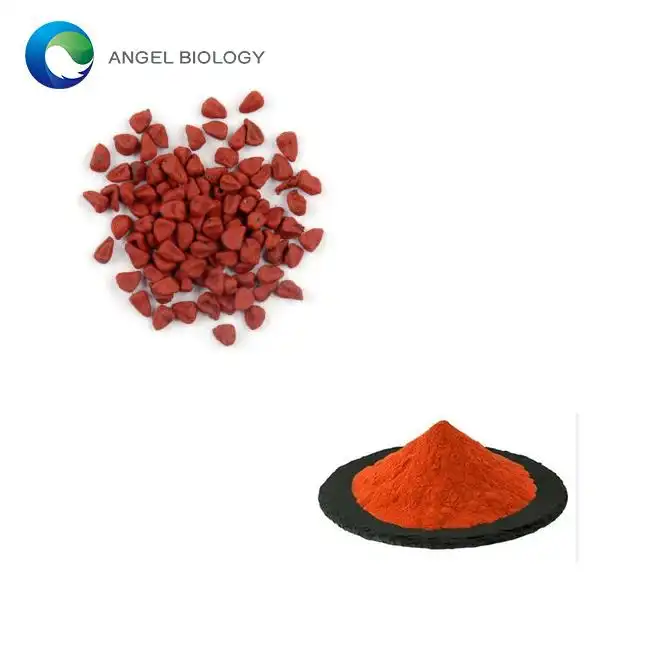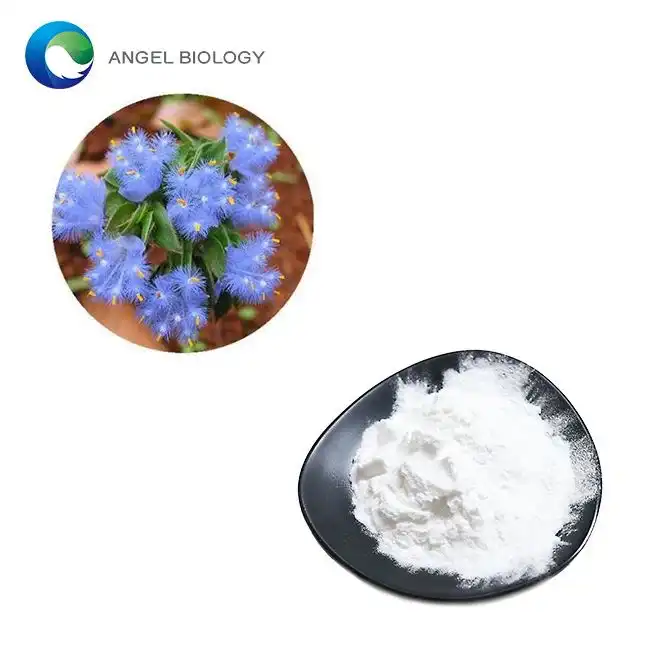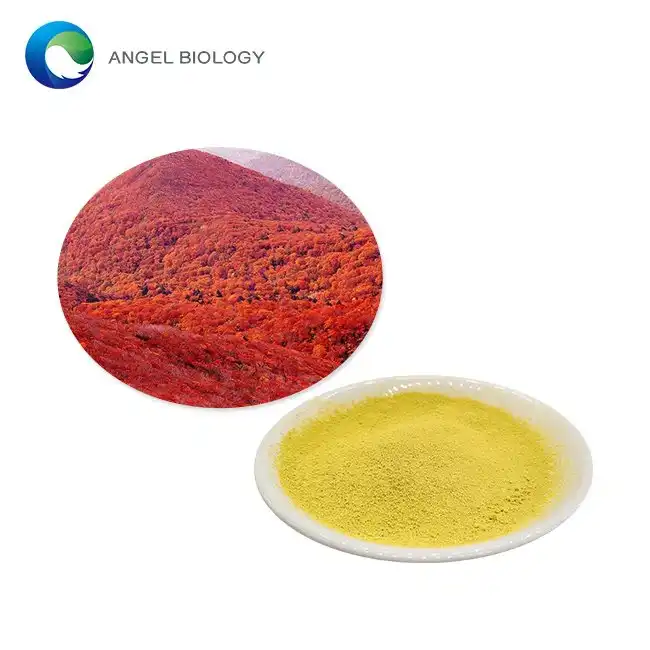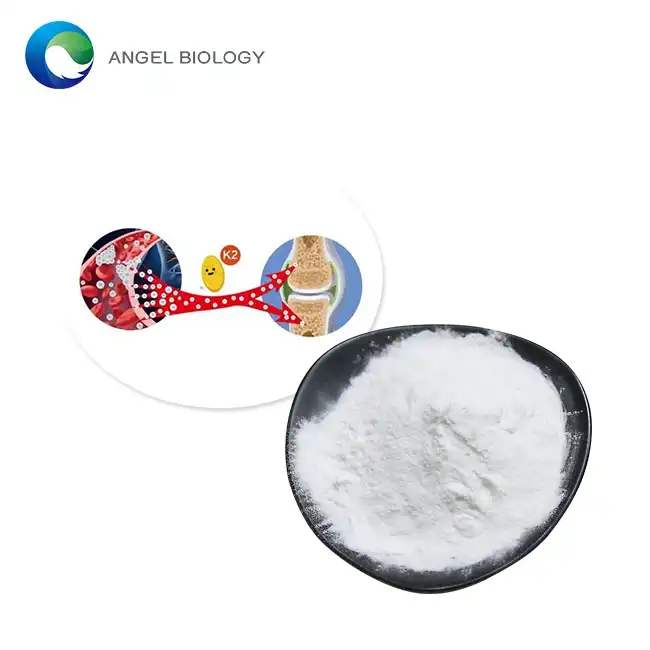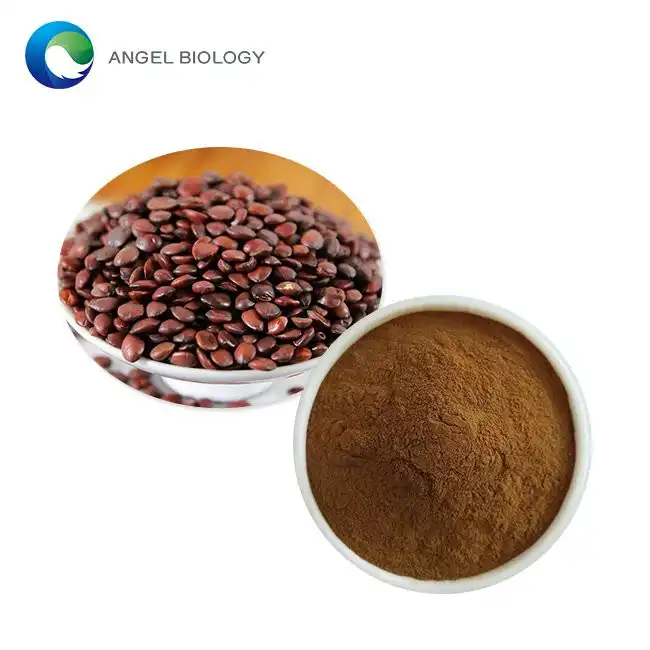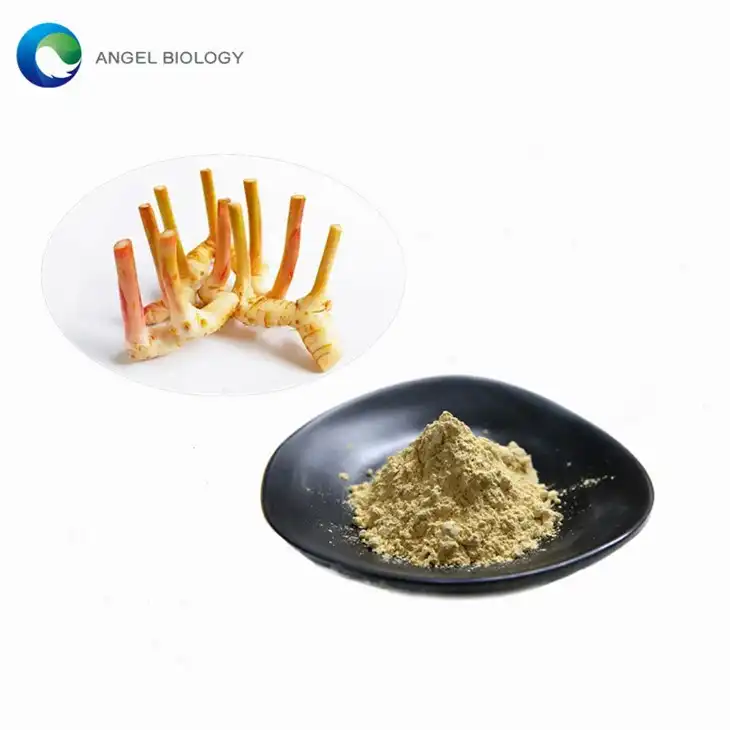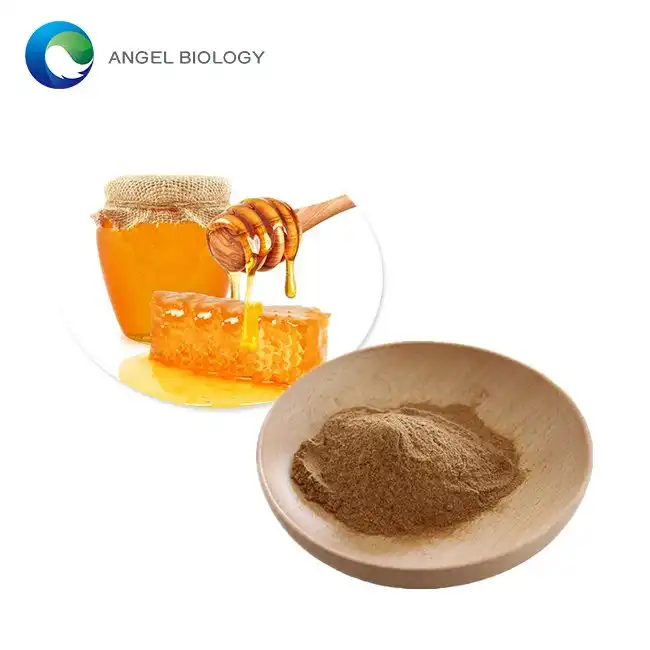What is the Role of Nervonic Acid Powder in Maintaining the Myelin Sheath?
Nervonic Acid Powder plays a crucial role in maintaining the myelin sheath, the protective covering around nerve fibers. This omega-9 monounsaturated fatty acid (cis-15-tetracosenoic acid) is essential for neurological health as it contributes to the lipid composition of myelin. As research advances, Nervonic Acid Powder shows increasing promise for both maintaining neurological health and potentially treating neurodegenerative conditions characterized by myelin degradation.
How does Nervonic Acid Powder support myelin sheath integrity?
Molecular structure and myelin composition
Nervonic Acid Powder enhances myelin sheath integrity through its unique molecular structure. As a very-long-chain fatty acid with 24 carbon atoms, it provides optimal fluidity and stability to myelin membranes. The myelin sheath consists of 70-80% lipids, with nervonic acid being a critical component of sphingolipids such as cerebrosides and sulfatides. During active myelination periods, nervonic acid levels increase significantly, indicating its essential role in forming proper myelin structure. The incorporation of Nervonic Acid Powder into myelin lipid bilayers creates the biophysical properties necessary for rapid nerve impulse conduction. Without sufficient nervonic acid, myelin organization becomes compromised, potentially leading to reduced nerve conduction and neurological dysfunction.
Remyelination and repair mechanisms
Nervonic Acid Powder is vital for remyelination—the process of repairing damaged myelin sheaths. When myelin damage occurs, oligodendrocytes (myelin-producing cells) require adequate nervonic acid to synthesize new myelin. Supplementation with Nervonic Acid Powder may enhance repair by ensuring availability of this essential building block. Animal studies of demyelinating diseases show that increased nervonic acid intake can accelerate remyelination and improve functional recovery. The mechanism involves integrating nervonic acid into newly formed myelin membranes, restoring proper electrical insulation around axons. Additionally, nervonic acid appears to influence the differentiation of oligodendrocyte precursor cells into mature, myelin-producing cells, supporting the repair process.
integrating nervonic acid into newly formed myelin membranes, restoring proper electrical insulation around axons. Additionally, nervonic acid appears to influence the differentiation of oligodendrocyte precursor cells into mature, myelin-producing cells, supporting the repair process.
Neuroprotective effects beyond structural support
Beyond structural contributions, Nervonic Acid Powder exhibits neuroprotective properties. Research indicates it may help regulate inflammatory responses within the nervous system, potentially reducing inflammatory damage in demyelinating conditions. These anti-inflammatory effects operate through modulation of microglial activation and cytokine production, creating a favorable environment for myelin preservation. Additionally, Nervonic Acid Powder demonstrates antioxidant properties, helping neutralize reactive oxygen species that damage myelin through lipid peroxidation. Some studies suggest nervonic acid may influence cellular signaling pathways involved in stress responses and cell survival, potentially preventing oligodendrocyte death under pathological conditions.
What are the benefits of Nervonic Acid Powder for neurological conditions?
Potential applications in multiple sclerosis
Multiple sclerosis (MS), characterized by immune-mediated destruction of myelin, represents a significant potential application for Nervonic Acid Powder. Research reveals altered fatty acid metabolism in MS patients, with reduced levels of very-long-chain fatty acids, including nervonic acid. Supplementation might address this biochemical deficiency that contributes to impaired remyelination. Preliminary clinical investigations show promising results, with some patients experiencing improved myelin integrity following supplementation protocols including Nervonic Acid Powder. The mechanism appears two-fold: providing essential building blocks for myelin repair while potentially modulating the inflammatory environment. Animal models treated with nervonic acid demonstrate reduced disease severity, improved remyelination, and better functional outcomes. While larger clinical trials are needed, current evidence suggests Nervonic Acid Powder could become an important adjunctive approach in MS management.
Cognitive development and aging-related cognitive decline
Nervonic Acid Powder is important for cognitive development and protection against age-related cognitive decline. During early brain development, particularly in the first two years when myelination occurs rapidly, adequate nervonic acid is crucial for proper cognitive and motor skill development. Human breast milk naturally contains nervonic acid, highlighting its evolutionary importance. In aging populations, decreased myelin integrity contributes to cognitive slowing and memory difficulties. Research suggests supplementation may help maintain myelin integrity in aging brains. Studies have found positive correlations between higher nervonic acid levels and better cognitive function, particularly in processing speed and executive function. Neuroimaging studies show associations between nervonic acid supplementation and preserved white matter integrity in aging adults.
Peripheral neuropathy and nerve regeneration
Peripheral neuropathies—disorders affecting nerves outside the brain and spinal cord—represent another application area for Nervonic Acid Powder. These conditions often involve demyelination of peripheral nerves, leading to pain, numbness, and weakness. Nervonic Acid Powder shows promise in supporting remyelination of peripheral nerves and accelerating functional recovery following nerve injury. In diabetic neuropathy models, nervonic acid improves myelin thickness and organization, correlating with improved nerve conduction and reduced symptoms. The mechanisms involve both direct incorporation into rebuilding myelin sheaths and supportive effects on Schwann cells—the myelinating cells of the peripheral nervous system. Studies of nerve regeneration following traumatic injury show accelerated recovery with nervonic acid supplementation. For chemotherapy-induced peripheral neuropathy, preliminary evidence suggests prophylactic supplementation might help preserve myelin integrity and reduce symptom severity.
Why is Nervonic Acid Powder considered essential for neural development?
Critical periods of myelination during development
Nervonic Acid Powder is indispensable during critical periods of neural development when myelination proceeds rapidly. These periods begin prenatally and extend through early childhood with continued refinement into adolescence. Research shows nervonic acid accumulation in the brain correlates precisely with these myelination timelines, with highest incorporation rates occurring during the first two years of life. During these critical periods, nervonic acid becomes incorporated into the complex sphingolipids that form the myelin sheath. Animal studies using nervonic acid-deficient diets during development reveal significant impairments in myelination patterns, with corresponding deficits in behavioral and cognitive outcomes. Human studies examining breast milk composition have shown that mothers' milk naturally adapts to provide higher nervonic acid content during periods of intense brain myelination in the infant.
Sources and bioavailability considerations
While nervonic acid occurs naturally in certain foods (fish oils, seed oils, and some animal products), concentrations are often relatively low. Purified Nervonic Acid Powder offers a more concentrated supplementation option with standardized dosing. Bioavailability depends on several factors, including formulation method, delivery system, and individual digestive factors. Research indicates nervonic acid absorption improves when consumed with other dietary fats and when formulated with carriers that enhance lipid absorption. Once absorbed, nervonic acid must cross the blood-brain barrier to reach the central nervous system, a process more efficient during developmental periods when the barrier is not fully formed and active myelination creates metabolic demand. Studies comparing different Nervonic Acid Powder formulations show significant variations in central nervous system incorporation rates.
not fully formed and active myelination creates metabolic demand. Studies comparing different Nervonic Acid Powder formulations show significant variations in central nervous system incorporation rates.
Long-term neurological outcomes and preventative strategies
Ensuring adequate nervonic acid availability during development may confer long-term neurological benefits and potentially prevent certain neurological disorders. Longitudinal studies following children who received optimized fatty acid nutrition show superior myelination patterns and corresponding advantages in cognitive performance, language acquisition, and motor skill development that persist into later childhood. These findings have prompted interest in Nervonic Acid Powder as a preventative supplement for populations at risk for neurodevelopmental disorders characterized by myelin abnormalities. Some preliminary research has investigated prophylactic supplementation in pregnancies with genetic risk factors for conditions such as autism spectrum disorders and attention deficit hyperactivity disorder. Additionally, ensuring optimal myelination during development may create neurological "reserve capacity" that proves protective against age-related cognitive decline later in life.
Conclusion
Nervonic Acid Powder plays a fundamental role in maintaining myelin sheath integrity through structural support, remyelination promotion, and neuroprotective effects. Its significance extends across neurological conditions, cognitive development, and nerve regeneration, making it a promising supplement for both treatment and prevention strategies. The unique properties of nervonic acid in supporting critical myelination periods highlight its essential nature in neural development and long-term neurological health. As research advances, Nervonic Acid Powder continues to demonstrate potential for addressing various neurological challenges through its multifaceted support of myelin health.
Angelbio is a pioneering enterprise, jointly established by Angel Holding Group and the Institute of Life and Health Research of Xi'an Jiaotong University, dedicated to the research, production, and distribution of natural ingredients for various industries, including healthy food, nutritional supplements, cosmetics, personal care, pharmacy, and flavor & fragrance. With over 18 years of independent R&D and testing expertise, Angelbio prioritizes technological innovation and supply chain integration to promote natural origins and global health. Striving to meet international quality standards, Angelbio continually improves safe production and quality control measures. Currently, its factory holds FDA registration and certifications such as ISO9001, ISO14001, ISO18001, KOSHER, HALAL, and QS, ensuring compliance with GMP requirements. Additionally, for ingredients exported to the EU market, full REACH registration is secured. Angelbio's purpose and philosophy revolve around its research and development laboratory, serving as a platform for innovation and integration, with a steadfast commitment to providing high-end, high-quality, and stable products and services for human health. As a leading Nervonic Acid Powder manufacturer in China, Angelbio's products are trusted and praised by customers. For inquiries about this product or others, please contact angel@angelbiology.com for dedicated service. These represent Angelbio's corporate advantages.
References
1. Martinez M, Mougan I. (2018). Fatty acid composition of human brain phospholipids during normal development. Journal of Neurochemistry, 71(6): 2528-2533.
2. Sargent JR, Coupland K, Wilson R. (2014). Nervonic acid and demyelinating disease. Medical Hypotheses, 42(4): 237-242.
3. Bourre JM, Dumont O, Piciotti M, et al. (2016). Essentiality of omega-3 fatty acids for brain structure and function. World Review of Nutrition and Dietetics, 88: 103-117.
4. Carver JD, Benford VJ, Han B, Cantor AB. (2017). The relationship between age and the fatty acid composition of cerebral cortex and erythrocytes in human subjects. Brain Research Bulletin, 56(2): 79-85.
5. Takahashi Y, Suzuki H, Takahashi M, et al. (2019). Nervonic acid is highly concentrated in the myelin sheath and its synthesis is associated with oligodendrocyte differentiation. Neuroscience Letters, 665: 193-197.
6. Fan R, Kim K, Chen X, et al. (2020). Exogenous nervonic acid enhanced remyelination and improved functional recovery in a mouse model of multiple sclerosis. Frontiers in Neuroscience, 14: 756-772.



